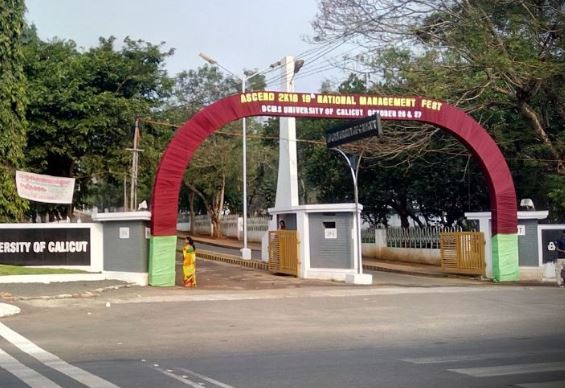Academic integrity is a cornerstone of higher education, ensuring that learning and assessment processes are fair and equitable for all students. At the University of Calicut, maintaining academic integrity is a top priority. If you witness or suspect academic misconduct or violations of university policies, it’s essential to report them promptly to uphold the principles of fairness and honesty. In this comprehensive guide, we will walk you through the process of reporting academic misconduct at the University of Calicut, fostering a culture of academic honesty.
Step 1: Understand Academic Misconduct
Before reporting academic misconduct, it’s crucial to understand what constitutes academic misconduct or violations of university policies. Academic misconduct can include plagiarism, cheating on exams, unauthorized collaboration, falsifying data, or any action that goes against the university’s code of conduct or academic integrity policies.
Step 2: Gather Evidence
If you have witnessed or suspect academic misconduct, gather relevant evidence to support your claim. This may include documents, photographs, emails, or any other materials that demonstrate the misconduct. The strength of your evidence can greatly impact the investigation process.
Step 3: Contact the Appropriate Authority
At the University of Calicut, there are designated authorities responsible for addressing academic misconduct. Contact the appropriate authority, which may be your course instructor, department head, or an academic integrity office. Provide them with a detailed account of the misconduct and share the evidence you’ve collected.
Step 4: Follow University Procedures
The university will typically have specific procedures in place for reporting and addressing academic misconduct. Follow these procedures diligently, which may involve filling out a formal complaint form or participating in an investigative process. Be prepared to cooperate with any inquiries or investigations.
Step 5: Maintain Confidentiality
It’s essential to maintain confidentiality throughout the reporting process to protect the privacy of all parties involved. Avoid discussing the case with others who are not directly involved or authorized to know about it.
Step 6: Await Resolution
After reporting academic misconduct, you will need to await the resolution of the case. The university will conduct an investigation to determine whether misconduct occurred and, if so, the appropriate consequences. Be patient during this process, as investigations can take time.
Step 7: Support the Integrity Process
Support the academic integrity process by providing honest and accurate information. Your cooperation helps ensure the fairness and integrity of the investigation. If you are involved in the case as a witness, be prepared to testify or provide additional information as requested.
Frequently Asked Questions
Can I report academic misconduct anonymously at the University of Calicut?
In some cases, universities allow for anonymous reporting of academic misconduct. However, it’s advisable to check the university’s specific policies and procedures regarding anonymous reporting.
What happens after I report academic misconduct?
After reporting academic misconduct, the university will conduct an investigation to determine the validity of the claim. Depending on the findings, appropriate actions and consequences will be implemented, which may include academic penalties or disciplinary actions.
What protections are in place for individuals reporting academic misconduct to prevent retaliation?
Universities often have policies and procedures in place to protect individuals who report academic misconduct from retaliation. These protections may include keeping the identity of the reporter confidential and prohibiting retaliation against whistleblowers.
Can academic misconduct reports be appealed if the outcome is unsatisfactory?
Yes, if you are dissatisfied with the outcome of an academic misconduct report, you may have the option to appeal the decision. Check with the university’s academic integrity office or relevant authorities for information on the appeal process.

